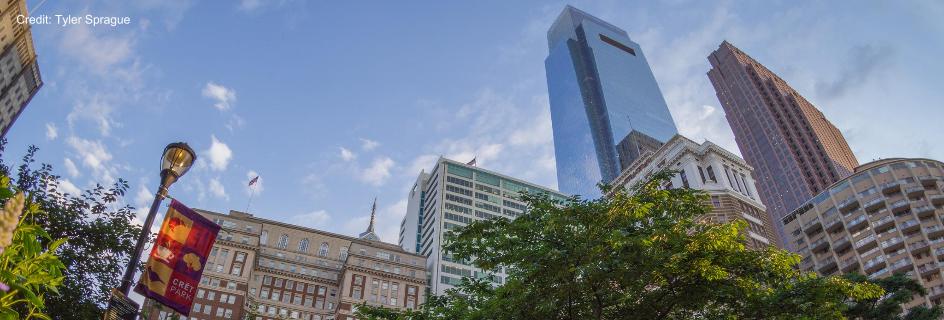- About GPA
- Global Events
- GLOBAL NEWS FROM PHL
- Global Directory
- World Heritage City
- Sustainable Development Goals (SDGs)
- Global Philadelphia Role on Sustainable Development Goals
- Completed Sustainable Development Goals
- SDG#1: No Poverty
- SDG #2: Zero Hunger
- SDG#3: Good Health & Well-Being
- SDG#4: Quality Education
- SDG#5: Gender Equality
- SDG#6: Clean Water & Sanitation
- SDG#7: Affordable and Clean Energy
- SDG #8: Decent Work and Economic Growth
- SDG #9: Industry, Innovation, and Infrastructure
- SDG#10: Reduced Inequalities
- SDG#11: Sustainable Cities and Communities
- SDG#16: Peace, Justice and Strong Institutions
- SDG#17: Partnerships for the Goals
- Press
Home ›
City Council Committee Holds Final Hearing on Global Opportunities and the Creative/Innovative Economy
Posted on March 12, 2013

Related
Organization
Organization
Person
Person
Melody Nielsen, for GPA -- It seems Philadelphia’s way into the future may be through its ports. At the City of Philadelphia City Council Committee on Global Opportunities and the Creative/Innovative Economy on February 27, business and bureaucratic leaders met to discuss the expansion of Philadelphia in the global economic sphere, with the goal of creating jobs and improving quality of life for citizens. This was the final in a series of hearings on the global economy, which the Council will use in their drafting of new policy regarding global initiatives and programs.
According to the presenting speakers, Philadelphia already has in place many of the necessary resources to become a global economic force, but it needs to work on collaborating to use them to their full potential. Philadelphia boasts a Consular Corps in which over 40 countries are represented, several world-class universities, and an ideal location for international trade, with 50 percent of the country accessible within a two-hour plane ride.
Despite having these advantages, however, the city “does not fully capitalize on them,” according to Michael E. Scullin, President of the Consular Corps of Philadelphia. Some other small efforts the city could make, according to E. Harris Baum, Honorary Consul for the Republic of Korea, are the institution of multilingual signs and informational booklets showing locations of historical sites, stocked in airport kiosks. We also need to educate ourselves. With regard to doing business with China, Terry Cooke, Chairman and Founder of the China Partnership of Greater Philadelphia, “Without the language and cultural familiarity, it is hard to do business.”
Another problem standing in the way of Philadelphia’s international economic growth is the lack of international outreach by governmental forces. Apart from Mayor Nutter’s mission to China last year, there has been little effort to connect via trade missions overseas. According to many of the speakers, Nutter’s trip was a huge success. The mayor was “treated like a king” in China, said David Webster. The Asian way of doing business, according to Baum, is “one by one, face to face,” making trade missions crucial. Sending missions to Israel would also be lucrative, according to Debbie Buchwald, Executive Director of the Philadelphia-Israel Chamber of Commerce. Citing successes with a small Israel-based pharmaceutical company, she recommended that officials have a dedicated representative who would travel and meet with early-stage companies that might attract outside investment.
There are more than enough opportunities to be had for Philadelphia in overseas markets. The China Partnership is working to build relations with the East, especially the challenge of creating a “pipeline” of long-term business relationships. The organization is already involved in one such project, a 10-year collaboration to commercialize environmentally friendly energy. Carlos I. Giralt-Cabrales, Consul to Mexico, said Philadelphia should especially pay attention to our neighbors just across the border, citing the 302 percent increase in Mexican imports following NAFTA and the existing framework for collaboration in Mexico’s partnership with the Commonwealth of Pennsylvania.
Philadelphia would do well to follow China’s example, said Webster, in welcoming foreign dignitaries. Bringing foreigners to Philadelphia is as crucial to business as visiting their own shores. “Tourists and businesspeople go where they feel well-received,” said Giralt-Cabrales. The China Partnership is hosting several cultural exchanges in the coming year, including a technology exchange with Tianjin focusing on clean energy technology, a VIP reception for visiting dignitaries, and a hosting of 100 Chinese students for an energy debate, the process of which will be documented on CCTV and BBC. Students are a huge point of cultural exchange in a city with so many world-class universities. Scullin in particular emphasized the importance of international students in science and technology, saying, “We should do what we can to keep them here.”








